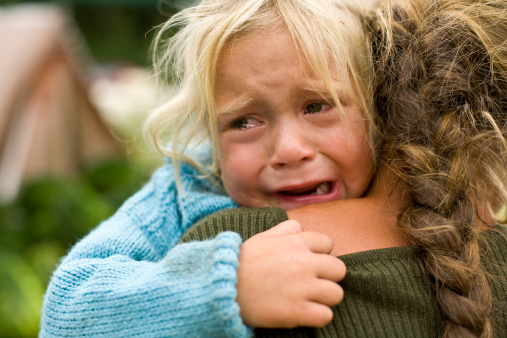How Can You Explain the War between Russia and Ukraine to Your Children?

We live in a world where information can come to children from all angles. Be it from the media, teachers, friends, and families. These days one of the most prominent news is about the war that is currently ongoing between Russia and Ukraine.

Though this is a difficult conversation to have with our children, we believe that it is important that this is a good opportunity to explain different concepts about life.
We encourage parents to have honest conversations with their children. However, that doesn’t mean you need to overwhelm your child with unnecessary information.

Keep your discussions appropriate for age level the last thing you want is for your child to come out of the talk feeling even more fearful of war. Don’t minimize the seriousness of war, but keep in mind that your child doesn’t need to know all the gory details of what’s going on. Stick to the facts without talking too much about the scope of the impact. And don’t predict what might happen next or talk about how horrific things will continue to happen in the future.
These are the few simple steps that we can use to explain war to our children.
1. Ask your children how and what did they know about the war between Russia and Ukraine?
Children may have heard bits of information from different sources and may be struggling to make sense of things. Ask them how did and how much do they know about the war.
2. Ask your children how do they feel when they know there is a war in Ukraine?
It’s natural for your child to feel anxious, confused, and upset about the prospect of war. And it can affect some kids more than others.
Young children aren't able to verbalize their stress so be on the lookout for behavior changes such as difficulty sleeping, becoming extra clingy, thumb sucking, bedwetting or talking like a baby.
Older children may express more fears about death, or they may report persistent upsetting thoughts if they're distressed. A child who keeps talking about it or one who wants to consume as much news as possible may be struggling to manage their anxiety.
Children with mental health issues or those who have experienced traumatic circumstances may be particularly vulnerable. Children of refugee or immigrant families may also be more likely to experience anxiety and distress.
3. Allow your children to explore their feeling
Let them express their feeling and help them to gradually navigate their emotion. If your child seems to have trouble coping with the information, talk to a specialist if needed.
4. Allow our children to share their views
Encourage your children to share their opinion, be non-partisan and even if you vehemently disagree, refrain from arguing about it or expressing your views in an angry manner.
If you are going to share your opinions, talk about how you feel about the war in general. You can share that with your children, particularly if you feel that the rationale behind your beliefs is part of your family’s values.
5. Help them to understand the conflict objectively from a different perspective
Try to be neutral and balance to avoid your children developing prejudice. Explain both sides of the story and emphasize sometimes people have differences and it's okay to embrace and defend your views.
The most important thing is to be objective and prioritize communication and avoid violent confrontation to find a resolution as much as possible.
6. Teach them to have compassion and grow empathy towards others
As much as you want to explain and discuss the war at length there is a more important topic which is empathy and compassion. Support your children if they want to help even in the smallest ways
Even a small act, like donating loose change to a charity that helps children in war-torn countries or making a care package for soldiers serving abroad, can go a long way toward helping your child feel like they have contributed and are able to make a real difference.
7. God is good all the time and all the time God is good
Although war is a very bad situation, try to find the good out of it although we may not fully understand it. Like explaining who are helping and doing well even in this tough time.
It’s important to help your children to understand because of sin the world has become corrupted and bad things happen because of our sinful behavior but God always has a good intention even if we may not comprehend.

War in Ukraine, Russia vs Ukraine, Vladimir Putin, Volodymyr Zelensky, NATO, Children at War, Children Wellness, Children Psychology, Parenting & Education, World Peace & Impacts of War
Children 4 Years - 6 Years / 4 Tahun - 6 Tahun / Parenting / Pola Asuh / Family / Keluarga / How Can You Explain the War between Russia and Ukraine to Your Children?
Comments













